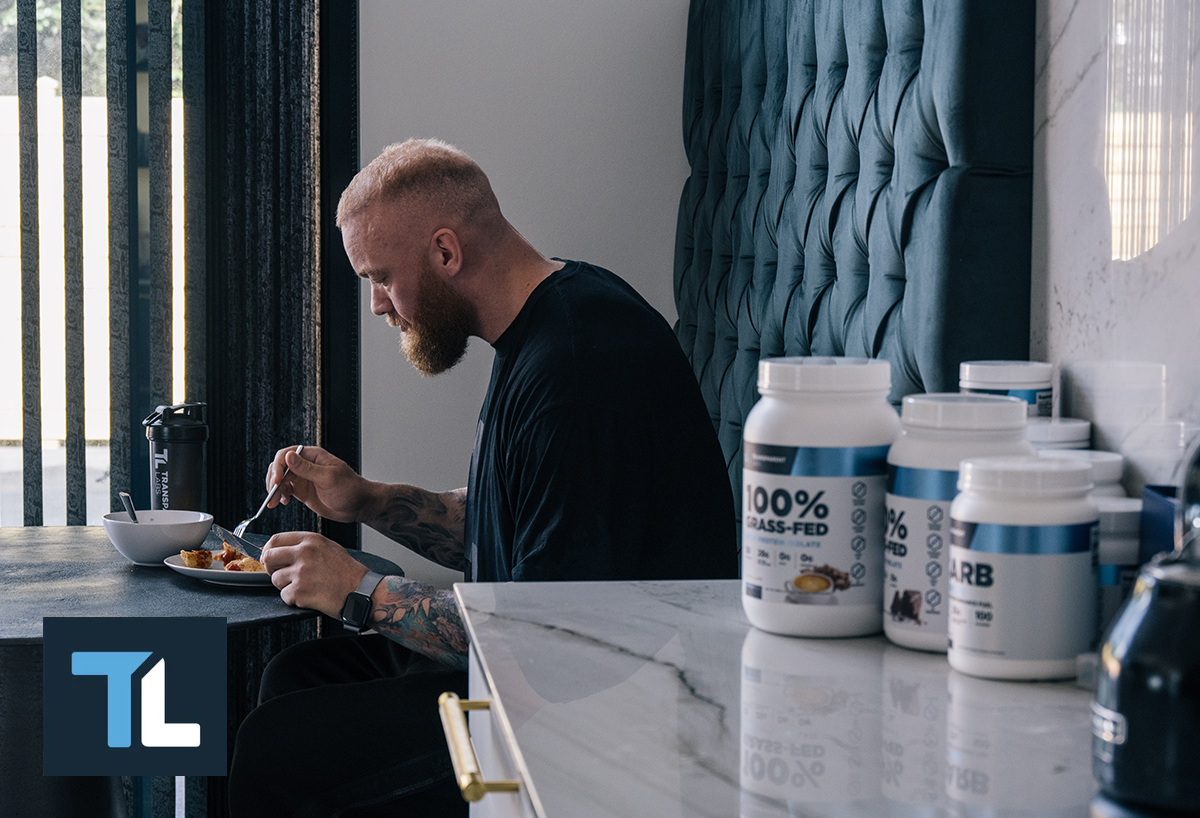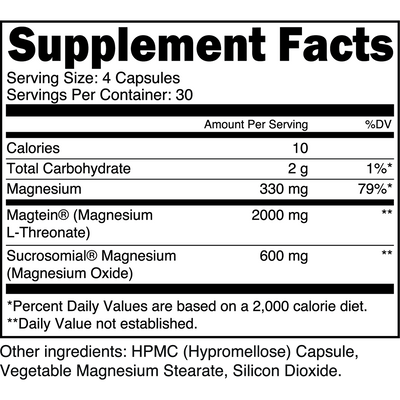6 Foods to Avoid When Building Muscle (& What to Eat Instead)

Gym-goers are often curious about what foods to avoid when building muscle is their main focus. After all, eating to build lean muscle mass entails more than ramping up your protein and calorie intake. However, you can eat just about anything in small amounts without negatively affecting your physique as long as you're not greatly overshooting your macronutrient and calorie demands. (We'll expand more on this in the next section.)
With that in mind, this article will discuss a handful of foods that are unlikely to be beneficial for building muscle (or your overall health). We'll also provide some simple alternatives and tips that will do just the opposite and help promote muscle development.
"Healthy" Foods vs. "Unhealthy" Foods

The following serves as a point of clarification before we discuss the foods to avoid when building muscle is your goal. Portion control, or lack thereof, is ultimately what determines if something is healthy or unhealthy. Sure, what you eat might be of less importance than how much you eat, but the ancient toxicology adage, "The difference between medicine and poison is in the dose," holds true for foods just like it does for drugs (or any chemical compound for that matter, even water). In this sense, we could adapt that toxicology adage to the realm of nutrition and say "The dose makes the diet."
For instance, saturated fats are often demonized as "bad fats," while unsaturated fats are considered "healthy fats." Generalizations like this completely disregard the nuance of human physiology and how nutrients affect us on a cellular and molecular level. There are many classes of saturated fats and some of them are quite healthful and support muscle growth (such as medium-chain triglycerides found in coconut) [1]; likewise, certain unsaturated fats, notably omega-6 essential fatty acids, can be detrimental to our health when consumed in excess [2].
Keep this in mind when deciding what to eat (and what not to eat) as part of your muscle-building diet.
6 Drinks and Foods to Avoid When Building Muscle
Now that we've gotten the "disclaimer" about food choices out of the way, let's take a closer look at which drinks and foods you should either greatly limit or avoid altogether when you want to gain muscle without adding excessive body fat. Some of these may seem obvious
Deep-Fried Foods
Deep-fried foods are notorious for their trans fat content, which can clog arteries and cause cardiovascular issues [3]. But deep-fried foods are also problematic for another reason: they often contain a high amount of advanced glycation end products (AGEs), noxious compounds that form when food is cooked at high temperatures [4]. AGEs can exacerbate oxidative stress and inflammation in the body, impairing muscle recovery and growth after intense workouts [5].
Instead of succumbing to cravings for deep-fried foods, consider alternative cooking methods that retain the nutritional integrity of food, such as steaming, poaching, or air frying. These methods preserve the nutrients and reduce the intake of low-quality saturated fat along with other potentially harmful compounds.
Alcoholic Drinks
Alcohol's impact on muscle building is multifaceted. Beyond lowering testosterone levels, alcohol consumption can impair muscle protein synthesis, the process by which the body repairs and builds muscle fibers [6]. Consequently, frequent alcohol consumption can negatively affect muscle recovery.
Alcohol can also affect judgment and decision-making, leading to poor dietary choices that further impede your fitness goals. For social occasions, consider non-alcoholic alternatives or mocktails that allow you to enjoy the moment without hindering your muscle-building efforts.
Highly Processed Foods
Highly processed foods often replace whole, nutrient-dense ingredients with refined sugars, "unhealthy" fats, and artificial additives. These substitutions diminish a food's nutritional value and are often not satiating, making it easier to overindulge.
Focusing on whole, single-ingredient foods and liquids is the simplest solution. Generally, the less processed a food is, the better it is for you. When grocery shopping, aim to fill your cart with foods closest to their natural state.
Soy-Based Foods
There's a longstanding misconception that eating soy-based foods and taking soy protein powder increases estrogen; however, moderate soy consumption doesn't negatively impact endocrine balance [7].
Regardless, those who consume soy as their primary protein source might want to diversify their selection. There are plenty of lean protein sources to choose from, such as lean meats, chicken breast, Greek yogurt, cottage cheese, eggs/egg whites, and whey protein powder, to name a few. The complete amino acid profile of these protein sources gives your muscles all the "building blocks" they need for repair and growth without exposing you to excess amounts of soy phytoestrogens.
Furthermore, soy is not the only complete protein source for vegans. Plant-based dieters can look towards lentils, chickpeas, quinoa, and hemp seeds as part of their protein rotation along with, or as a replacement to, soy. Brown rice protein and pea protein are also great options when looking for a soy-free vegan protein powder.
Sugary Beverages
If you're after muscle growth, hydration is key. Water, infused with fruits or electrolytes, can provide a refreshing alternative that supports hydration without all the unnecessary added sugars found in traditional "sports drinks" and energy drinks.
Sugary drinks also often lack essential nutrients like vitamins, minerals, and fiber, which are crucial for supporting metabolic health and muscle growth. The empty calories they provide can disrupt your body's natural hunger signals, leading to excess calorie intake without satisfying your nutritional needs.
Excess Caffeine Intake
Caffeine, in moderation, is unequivocally effective for improving exercise performance, but it's crucial to recognize its limitations and potential downsides [8]. Overreliance on caffeine, whether from supplements, energy drinks, coffee, or soda, can lead to dependency, with diminishing returns for energy and focus. It can also exacerbate stress levels, potentially increasing cortisol, a hormone that can hinder muscle growth and impair muscle recovery when chronically elevated [9].
To reap the benefits of caffeine without the drawbacks, consider limiting your total intake to 400 mg daily; taking occasional breaks from caffeine altogether will also help reset your tolerance. Ideally, you should consume most of your daily caffeine dose an hour or two after waking up and/or before working out. If you take a pre-workout supplement but work out close to bedtime, switching to a caffeine-free formula is wise so you can get a good night's rest.
Eating for Muscle Growth Isn't as Complicated as it Seems

Crafting a diet conducive to building lean muscle mass is about more than just protein shakes and chicken breasts, but it's not as complex as some people want to believe. Sure, there are some foods to avoid when building muscle is your primary goal, but they're much fewer than the foods you should eat.
For every food or drink to avoid, there's a healthier alternative that can support your muscle-building goals. Here are a few ways to "healthify" your muscle-building meal plan:
-
Swap deep-fried foods for grilled or air-fried options.
-
Choose water or herbal teas over sugary beverages.
-
Opt for mocktails or non-alcoholic beers instead of alcoholic drinks.
-
Replace highly processed snacks with whole-food options like nuts, seeds, or fresh fruit.
-
Balance soy intake with other protein sources to ensure a varied diet.
- Moderate caffeine consumption, focusing on water and herbal teas as primary hydration sources
Other simple, actionable tips to follow for building muscle include:
- Eating at least 5 servings combined of fibrous vegetables and fruits per day
- Limiting your consumption of alcoholic beverages (an occasional drink or two won't significantly hinder muscle protein synthesis, but heavily drinking every weekend will)
- Reducing consumption of sugary foods/drinks; a few Oreos here or there won't kill you, but regularly stuffing your face with them probably won't lead to the type of "gains" you want (i.e. lean muscle mass).
- If you eat meat often, choose the free-range and grass-fed varieties and consume plenty of prebiotics (digestion-resistant starch, inulin, oat bran, wheat bran, etc.) to reduce protein fermentation in the colon and inhibit the gut bacterial formation of trimethylamine oxide. Taking a prebiotic supplement, such as Transparent Labs Prebiotic Greens, might also be wise.
- Don’t use pan drippings when frying and roasting meats at high temperatures due to the high amounts of likely carcinogenic heterocyclic amines (HCA) and polycyclic aromatic amines (PAH) that can form during cooking [10]. Instead, utilize low-temperature cooking methods such as roasting, boiling, steaming, microwaving, and stewing.
- Limit your intake of barbecued, charred, and smoked/cured meat as much as possible, as these increase the body's production of carcinogenic N-nitroso compounds [11].









